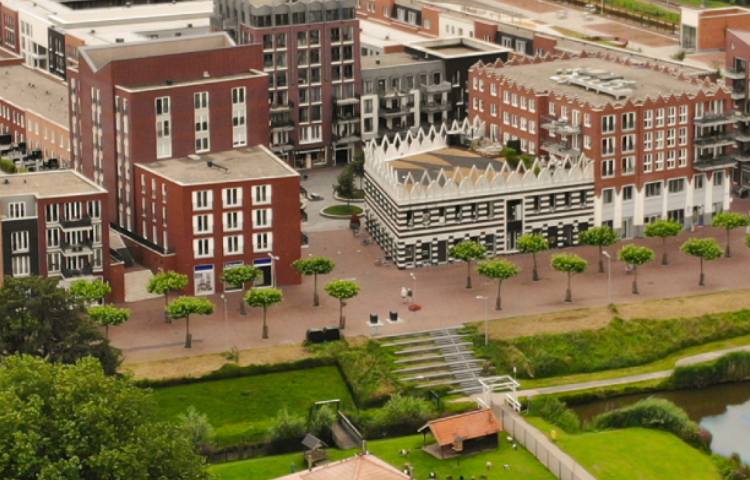The housing shortage will increase annually, from 330,000 to 419,000 in 2025. In absolute terms, there is plenty of space, houses / residential areas cover only 7% of the total surface area of the Netherlands. And yet it is not possible to solve the housing shortage.
Think bigger than the Randstad. We have to stop sticking to plans to build vertically and focus only on the Randstad. There is plenty of space outside this area. Space that we desperately need if we look at population growth in the coming decades. Moreover, distances in our country are nothing. The challenge is accessibility, or good (train) connections so that the Randstad is within 45 minutes travel time for everyone. If we only focus on housing within the city limits, we will not get there.
Affordable living for everyone.
Good and affordable housing is a right for everyone. You allow starters and other middle incomes to live close to their work. In the current climate of regulation and local policy, all relationships seem to be lost. Home seekers fall between the cracks and tenants even fall below the poverty line because half of their income is spent on housing costs ("social poverty"). The fact that parts of new-build complexes are vacant, because the income requirement ensures that apartments (50m2) cannot be rented out, is the pinnacle. At the same time, housing associations are faced with the enormous task of building additional homes in the social segment, despite the landlord levy and the sustainability requirement for existing and new portfolios.
Qualitative need.
The qualitative demand for housing is changing. On the one hand, there will be more single-person households and there is a demand for smaller homes, which are anticipated in (large) cities. On the other hand, there is a need for space: living together in a small apartment while we now also have to work there appears to be quite a challenge. Moreover, we have a greater need for space outside and a green environment. Greenery in the cities is now being used more intensively than was planned. More and more people are opting - forced or otherwise - for housing outside the big cities. Both single households and families.
There is a need for a national solution and central control with local application to solve this housing crisis and keep it resolved. By looking beyond and pushing the boundaries of the Randstad, we get a better spread of urban development in the Netherlands. If cities broaden their horizons and mutually cooperate in a network of centers based on the 'urban field' philosophy, they can function as one city within an agglomeration. Our existing fine-meshed and small-scale design lends itself well to this, while keeping cities liveable and spacious. This benefits the affordability of homes because it is possible to build in more places and yields are under less pressure due to high land prices. Accessibility can be improved by properly expanding public transport within this network. With this central management we ensure that the large cities (centers) also retain their mix of functions and that people from all walks of life can live there well and affordably. For example, the Randstad does not empty out, but merely expands and maintains and strengthens its dynamism as an economic heart.
Every month a column is published on a topic related to the value of the city. This vision is based on internal research and dialogue with internal and external stakeholders, in close collaboration with consultants and analysts from our Real Estate Strategy & Innovation team. More background can be found in the similarly named Insight: the Randstad is emptying out (in Dutch).













